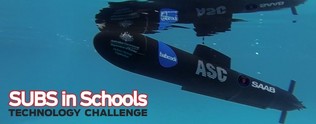
This is the case with my guest this week, Brian Clarke, VK2GCE, who caught the amateur radio bug very early in his life in Auckland, New Zealand. It wasn’t until later that he actually got his license. He became a talented musician in addition to pursuing a degree in electronics. He then used his combined knowledge to better understand the waveguide properties of a brass trumpet. Somehow his radio and electronics background made it obvious to Brian that a trumpet has properties similar to waveguide used in microwave communications. The only work left was to prove these assumptions and to earn his Master’s Degree.
Brian discusses in the podcast the “Subs in Schools” program sponsored by The Re-engineering Australia Foundation. This program engages students by helping them to understand and apply the technology of submersible vehicles and submarines. The students do the research, design, build and apply what they learn to control their submarine models in the water. Imagine what benefits come from this project based learning which they can later apply to solving other complex problems.
While there is a lot of discussion of STEM programs (Science- Technology-Engineering-Math) in schools which foster these skills in students, it is only when this knowledge is applied to problem solving that it becomes more than an intellectual exercise and bears fruit. Hands- on projects like Subs in Schools need to be a major part of STEM programs.
Our amateur radio hobby provides a solid foundation to support STEM programs in our schools. Think about what we as HAMS can do, especially those of us close to or in retirement, as volunteers to bolster these programs with our hands- on and real world knowledge. The opportunities are endless!
73, Eric 4Z1UG



 RSS Feed
RSS Feed